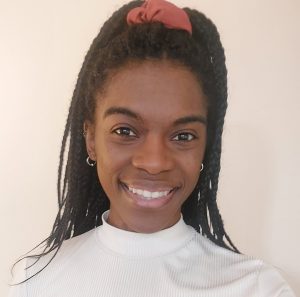Akeisha’s Blog – Remembering the Pan-African Congress
 I hope you’re in the mood for a bit of a history lesson today!
I hope you’re in the mood for a bit of a history lesson today!
As someone who lives and works in Greater Manchester as an Equality, Diversity and Inclusion Officer, I find it amazing that so many incredible events have happened in our region which have led to huge societal and political changes. Unfortunately, lots of these key moments are forgotten or not given the credit, until someone, or a group of people, come along to bring it into the light.
One of these events was the 5th Pan-African Congress, a six-day event featuring talks and meetings such as anti-capitalism and anti-imperialism, which gave voice to people who continued to face racial discrimination and inequality.
Between 15th-21st October 1945, the Congress took place in Chorlton-on-Medlock, Manchester, and kick-started a number of changes relating to African independence and the Black rights movement. Yet, despite the heavy influence and importance of the congress, there was little publication about it in British media, leaving many people today unaware of its place in history.
At the time in 1945, the end of the Second World War meant the old colonial powers of France and Britain were severely weakened. Many African and Black British soldiers fought for the allies in the name of freedom, but they were not treated as equals. Black people continued to face discrimination and prejudice from people in Britain, France, and other countries who fought alongside them, highlighting the hypocrisy of the war effort. Black people were told to fight for the colonial powers, who in turn continued to treat non-white people as second-class citizens and offered no support to enact widespread societal change.
The 5th Pan-African Congress then was a huge step, organised by Black British and African activists who wanted to fight for their rights and equality. As well as being an opportunity for people to gather, talk and meet likeminded activists, the event held two primary goals:
- Equality of all men and women regardless of skin colour
- End to official discrimination in all public places such as bars, theatres, and public transport
The Town Hall was decorated with flags from Ethiopia, Liberia, and The Republic of Haiti, as these were the only three Black nations under self-governance at the time.
The congress had a really diverse group of attendees, with over 200 people from around the world. This included Black, white and Asian people from Africa, the Caribbean, Asia, the UK and the USA. It was also the first congress to include more working class people, including people from labour movements, rather than just Black elites. One of the organisers, Peter Abrahams, described this event as ‘the first truly representative one,’ and I think this really shows how powerful true diversity can be. People from all different backgrounds, races and walks of life came together with the same common goal, and every voice was valued equally. This is something we can all aim to mirror, especially as Creative Support is already such a diverse organisation.
Trinidadian Marxist George Padmore, who was one of the event’s organisers, delivered a speech called ‘Challenge to the Colonial Powers’, which demanded ‘autonomy and independence’ for African countries, and stated that ‘anti-colonialism and anti-capitalism went hand-in-hand’;
“We are determined to be free. We want education. We want the right to earn a decent living; the right to express our thoughts and emotions, to adopt and create forms of beauty. We demand for Black Africa autonomy and independence, so far and no further than it is possible in this ‘One World’ for groups and peoples to rule themselves subject to inevitable world unity and federation.” Padmore said to the congress.
Other talks over the course of the congress followed similar veins, calling for an end to colonialism and freedom for people in African countries who were still being subject to foreign rule. ‘All colonies must have the right to elect their own governments, without restrictions from foreign powers’, reads a quote from the ‘Declaration to the Colonial Workers, Farmers, and Intellectuals’ talk at the event.
The 5th Pan-African Congress is viewed as the event which ‘got the ball rolling’ in the right direction for change regarding inequality, racial discrimination, and colonialism. Within a few years of this event, African countries began to gain independence, and 80 years on, the number of independent African nations has increased from three to 54.
Like many people, I knew very little about this congress until recently. It is not taught, celebrated, or even acknowledged in the media, despite it being an important part of British history. Over the past few weeks, I’ve enjoyed reading and learning about the congress and the many influential individuals who attended. For example, Kwame Nkruma who became the first President of Ghana, and Mzee Jomo Kenyatta who became the first President of Kenya. It can be easy to overlook how far we have come in the fight for equality if we don’t reflect on the hard work and achievements of those before us. And since 2025 marks the 80th anniversary of this significant event, it seems like a perfect time to give it the spotlight.
The Royal Exchange Theatre in Manchester recently produced a show all about the 5th Pan-African Congress, showing that though the event wasn’t publicised at the time, it doesn’t mean its impacts didn’t continue to ripple out to today.
We have a limited number of tickets available if you would like to see the show until this run finishes on Saturday 26th July, so please get in touch with Akeisha through EDI@creativesupport.co.uk if you would like one. You can also get in touch with Akeisha to discuss this blog or other EDI-related work – she would love to hear from you.
